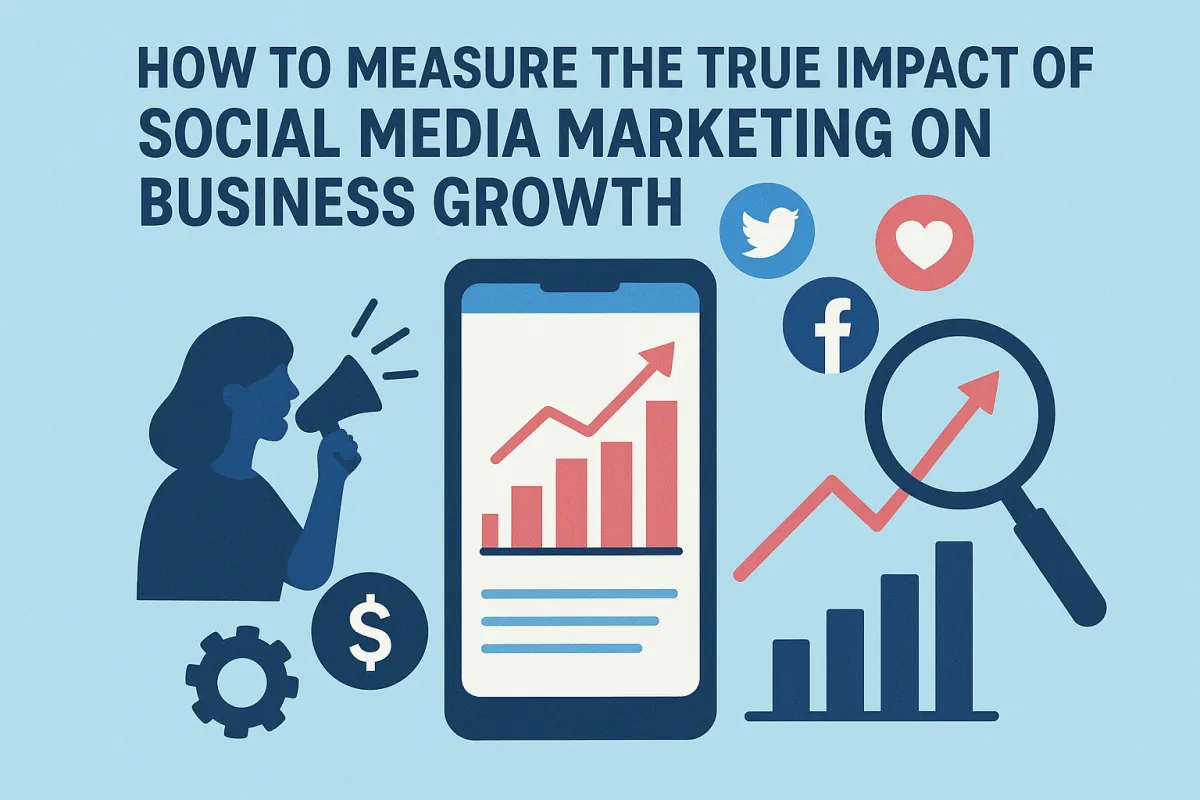
How to Measure the True Impact of Social Media Marketing on Business Growth
Social media has become one of the most powerful tools for businesses to connect with audiences, build brand awareness, and drive sales. But while likes, comments, and shares may feel encouraging, they don’t always reflect the actual impact on business growth. To truly understand the effectiveness of social media marketing, businesses need to measure beyond vanity metrics and focus on tangible results.
Understanding the Role of Social Media in Business Growth
Social media is no longer just about engagement—it’s a revenue-driving channel. Platforms like Instagram, TikTok, LinkedIn, and Facebook allow brands to reach highly targeted audiences, build customer loyalty, and generate leads. When measured correctly, social media campaigns can provide clear insights into how they contribute to brand visibility, customer acquisition, and long-term growth.
Moving Beyond Vanity Metrics
While metrics such as likes, shares, and followers can show audience interest, they don’t necessarily equal business success. A company may have a large following but still struggle with conversions. Instead, businesses should focus on key performance indicators (KPIs) that link directly to growth, such as:
Website traffic generated from social channels
Lead generation and sign-ups
Conversion rates from social campaigns
Customer acquisition cost (CAC)
Return on ad spend (ROAS)
These KPIs show whether your social media efforts are helping to achieve broader business objectives.
Tracking Website Traffic and Conversions
One of the most reliable ways to measure the impact of social media is by analyzing website traffic. Using tools like Google Analytics, businesses can see how many visitors come from different platforms and what actions they take after landing on the site. For instance, if a Facebook ad drives traffic but visitors quickly leave without making a purchase, it suggests the campaign needs optimization.
Conversions, such as completed purchases, sign-ups, or downloads, provide the clearest indication of how social media contributes to revenue. Setting up conversion tracking ensures that every campaign can be evaluated against its return on investment (ROI).
Monitoring Customer Engagement and Brand Sentiment
Engagement isn’t meaningless—it just needs to be analyzed properly. Comments, mentions, and shares reveal how customers perceive your brand. Monitoring brand sentiment can help businesses understand if campaigns are strengthening brand loyalty or sparking negative responses. Tools like Sprout Social or Brandwatch allow companies to track sentiment and analyze whether their messaging aligns with audience expectations.
Measuring Long-Term Customer Value
One overlooked area in social media measurement is customer lifetime value (CLV). If social media campaigns bring in customers who continue to purchase over months or years, the long-term impact is far greater than a one-time sale. Tracking how social-acquired customers perform compared to those from other channels can reveal the real power of social media in sustaining growth.
The Role of Paid vs. Organic Social Media
Businesses should also evaluate the difference between organic reach and paid advertising. Organic content builds trust, community, and brand loyalty, while paid campaigns provide scalability and direct conversions. Measuring the balance between these two approaches can help refine budgets and ensure resources are invested where they deliver the best returns.
Conclusion
Measuring the true impact of social media marketing requires businesses to look past vanity metrics and focus on outcomes tied to growth—such as conversions, customer retention, and revenue. By analyzing website traffic, customer behavior, brand sentiment, and long-term value, businesses can clearly see how social media contributes to success.
In 2025 and beyond, the brands that thrive will be those that measure strategically, optimize continuously, and understand that social media is not just about engagement—it’s about driving sustainable business growth.